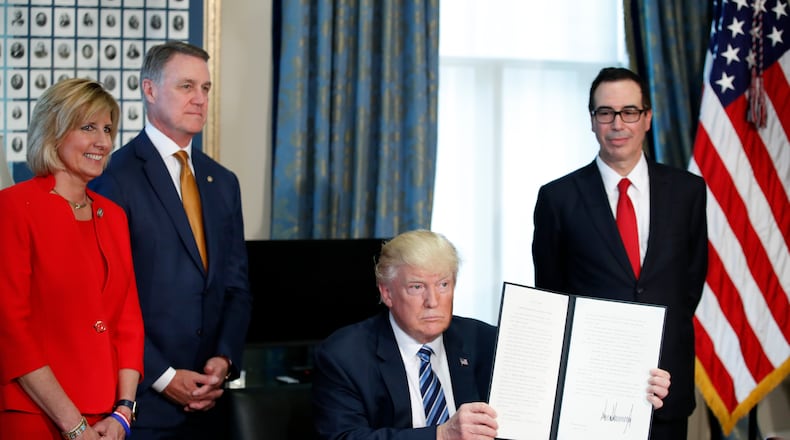WASHINGTON -- An overhaul of the country's legal immigration system co-authored by Georgia U.S. Sen. David Perdue is getting red carpet treatment at the White House on Wednesday, receiving a seal of approval from President Donald Trump that proponents hope can give the divisive proposal some momentum on Capitol Hill.
The White House announced Tuesday evening that Trump would be making an announcement with Perdue and his Republican colleague Tom Cotton of Arkansas on Wednesday morning. A source familiar with the rollout said the event would focus on legislation expanding on the Reforming American Immigration for Strong Employment Act, or RAISE Act, that the two senators released in February.
"We want people that worked really hard in their country and that are going to come into our country and work really, really hard," Trump said at an event in Ohio last week, during which he mentioned working with Perdue and Cotton. "We don't want people that come into this country and immediately go on welfare and stay there for the rest of their lives.”
Perdue and Cotton's proposal, which aims to sharply lower the number of permanent, legal migrants the government allows into the country each year, so far has not advanced in the Republican-led Senate. That's because curtailing legal immigration is seen as a controversial issue -- even within the GOP -- since it's of utmost importance to many U.S. businesses.
Their original bill would:
- Limit the number of refugees admitted annually to 50,000 (compared to the 110,000 refugees then-President Barack Obama announced he would allow in last year).
- Kill the State Department's Diversity Immigrant Visa Program, a popular lottery program that selects roughly 50,000 people annually to permanently live in the U.S., or roughly 0.3 percent of applicants to the program.
- No longer offer green card preference to the extended family or adult children of immigrants already living legally in the U.S. Spouses, children under 18 and sick parents would still be given preference.
Immigrant and refugee groups based in Georgia panned the effort.
About the Author
The Latest
Featured




